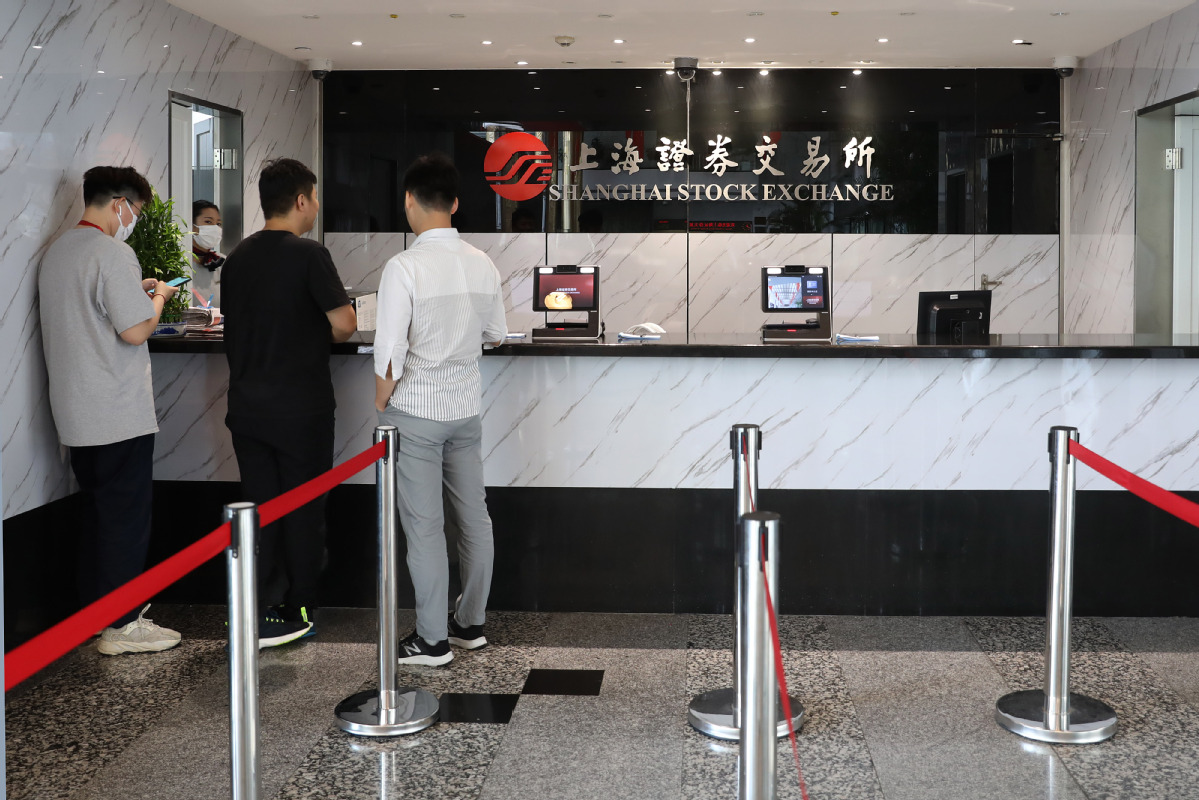Foreign capital shows value of A shares
 0 Comment(s)
0 Comment(s) Print
Print E-mail China Daily, June 28, 2022
E-mail China Daily, June 28, 2022

The roughly 70 billion yuan ($10 billion) of foreign capital that has flowed into the A-share market this month marks the biggest such monthly net inflow this year, and demonstrates the value of Chinese equities at a time of increasing uncertainties in the global market, experts said on Monday.
Such noticeable foreign capital inflows have reached A shares via the stock connect mechanisms linking Shanghai, Shenzhen and Hong Kong exchanges.
Some 7 billion yuan was invested on Monday alone, according to market tracker Wind Info. Shares of companies in sectors like food and beverage, power equipment and biomedicine have attracted the most foreign investment, with each sector registering more than 10 billion yuan of net foreign capital inflow so far this month.
World-leading financial institutions have been snapping up Chinese equities. For instance, International Focus Equity ETF, an exchange traded fund managed by Capital Group Companies, a U.S. financial services provider, has increased its holding in A-share companies such as Wuxi AppTec Co Ltd, Kweichow Moutai and Shenzhen Inovance Technology Co Ltd this month.
A China-focused equity fund under Schroders plc increased its investment in battery giant CATL in May. Likewise, a China-themed fund managed by JPMorgan increased its holding in China Yangtze Power Co Ltd and China Merchants Bank last month.
The divergent performance in the Chinese and U.S. stock markets is one trigger. As of Monday, the benchmark Shanghai Composite Index has gained nearly 6.2 percent this month, and Shenzhen Component Index has risen 11 percent. But Dow Jones has shed 4 percent this month and Nasdaq lost 3 percent.
The unexpected 75-basis-point interest hike that the U.S. Federal Reserve announced in mid-June has impacted prices of risk assets, including U.S. stocks and cryptocurrencies, said Thomas Fang Dongming, head of China Global Markets at UBS.
Li Jing, director of equity research at Fidelity International, said now is a good time to invest in the A-share market as its average price-to-earnings ratio is around 10 times and approaching the historic low. The A-share market has thus shown investment value from the long-term perspective.
The U.S. economic slowdown, even a feared recession, is of high probability given the current readings, especially the soaring inflation. The valuation of the U.S. stock market is above the average recorded over the past decade even after the latest adjustment, as its PE ratio is around 20 times at present, Li said.
On the other hand, China has made continued efforts to introduce more supportive fiscal policies, and its adjustments have kept the monetary policy relaxed at a reasonable level over the past two years.
In this sense, China's macroeconomy will be more stable and more resilient when confronting external impact. In light of the mounting uncertainties in the global economy, the Chinese stock market will be of greater value, she said.
According to Qin Peijing, chief strategist at Citic Securities, foreign capital, together with private equity and insurance capital, will constitute the major additional institutional capital inflows into the A-share market in the second half of the year.
Given the recovering economic fundamentals in China, more institutions will get attracted, steadily increasing their exposure to the A-share market. So, an additional 200 billion yuan of foreign capital will likely flow into the A-share companies in the next six months, Qin said.





